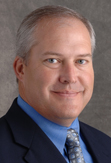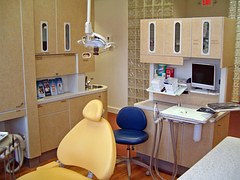For the second time in two weeks, a health committee of the Georgia House tabled a bill Tuesday that would allow dental hygienists to practice in safety-net settings without a dentist present.
But a hearing on House Bill 684 showed there was new dialogue between Rep. Sharon Cooper, chair of the House Health and Human Services Committee, and the Georgia Dental Association about the proposal.
Two weeks ago, Cooper, a Marietta Republican, denounced the Dental Association for what she said was its unwillingness to discuss the proposal.

The legislation would allow hygienists to clean teeth in safety-net clinics, nursing homes, federally qualified health centers and school-based health clinics without a dentist present — if the work has been authorized by a dentist. Currently, Georgia law requires that a dentist actually be present in the facility for a hygienist to do such work.
The association’s executive director, Frank Capaldo, told the committee that his group, after meeting with the dental hygienists and Rep. Cooper, was in agreement with almost all of the revised bill, which would place more specific limitations on the safety-net work than the original version.
“We are in support of the bill,’’ he said. “We’re 99.9 percent there.”
Despite his testimony, though, some members of the House committee expressed doubts about the legislation.
Rep. Chuck Martin (R-Alpharetta), the bill’s main sponsor, reiterated to the panel that the legislation would not require any dentist to authorize a hygienist to work in safety-net situations without them being present.
Parsing the details
A Senate panel approved a similar proposal Monday, but the House version is the one that has engaged the Dental Association more closely, Martin said.
Martin told GHN after the hearing Tuesday, “We’ve got time to get it right.” He said he was confident that a bill would pass, and that “people will get services who don’t have it today.”
Backers of the legislation say hygienists can legally clean teeth without a dentist’s direct supervision in 45 states.

The hygienists says that 118 of Georgia’s 159 counties do not have enough dentists.
In 2013, the hygienists say, 66,000 Georgians sought care at hospital emergency rooms for dental diseases that could have been prevented by routine care. That avoidable ER care cost the state $47 million, they say.
Capaldo questioned the hygienists’ statistics about gaps in dental care in the state. “I think it’s a different set of facts,’’ he said.
The revised restrictions would bar hygienists from safety-net activity occurring more than 100 miles away from the authorizing dentist’s office, which also would have to be located in Georgia. The intent, according to state Rep. Ed Rynders (R-Albany), is to keep dental “mills’’ based in other states from operating in Georgia.
There would be limits on the number of hygienists that a dentist could authorize to work independently, and the dentist would have the right to insist on examining a particular patient before the hygienist did the work.
Rep. James Beverly, a Macon Democrat, said he preferred to limit the safety-net situations to those areas of Georgia that are designated as being short of dentists. “I’m concerned about the scope and reach” of the bill, he said.
But Rep. Dexter Sharper (D-Valdosta) said, “Let’s see what we can do to help the children and the older people.”
Hygienists note that they are allowed to clean teeth in Georgia public health departments without having a dentist present, if they are authorized by a supervising dentist.
As the lawmakers’ questions kept coming, the panel decided to table the measure. Rep. Katie Dempsey (R-Rome) said, “I just don’t feel like we have the answer here.”
While there are were obvious disagreements on the measure Tuesday, the tone was much less contentious than it was two weeks ago.
Back then, Cooper set the proposal aside after more than an hour of committee questions and testimony from proponents of the bill. After tabling the bill, she did not allow Dental Association officials to speak to the committee, though they requested to do so.
“All I’ve gotten from the Dental Association is no, no, no,’’ Cooper complained at the time. “I’ve just had it.’’
But Tuesday, she told GHN that the association had come to the table, and that she was confident about the process moving forward.
“We’re getting there,’’ she said.

